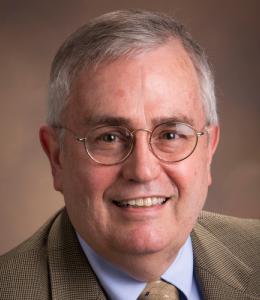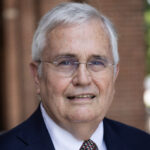“It is the first responsibility of every citizen to question authority.” — Benjamin Franklin
Franklin may have said it first, but the last two words of his maxim were popularized most by Timothy Leary, who Richard Nixon called “the most dangerous man in America.” After Nixon was forced from office, the words “became arguably the most accepted form of ideology among baby boomers,” says Wikipedia — which itself illustrates how authority has been diffused in the last 50 years.

Authority always needs questioning. When baby boomers were growing up, a series of presidents waged a war and misled the public about it, costing more than 58,000 American lives. The last of those presidents, Nixon, abused his office and the Constitution. In the wake of the Watergate scandal, confidence in the news media, which had revealed those perfidies, reached an all-time high.
In those days, the news media were the primary alternate authority that kept official authority in bounds, and that’s the way the writers of the Constitution and its First Amendment envisioned it. The amendment’s main author, James Madison, told Kentucky Lt. Gov. William Barry in 1822, “A popular government without popular information or the means of acquiring it, is but a prologue to a farce, or a tragedy, or perhaps both.”
“Popular information,” to Madison, meant information that was available to, and easily understandable by, the general public — the electorate. Today, technology has made information more “popular” than Madison could ever have imagined, and it is easier than ever to question authority. But when that leads to undermining public trust in authorities that are essential to the proper functioning of democracy and civil society, we have too much of a good thing.
In the last year, millions of Americans have come to believe that local and state election officials allowed a presidential election to be stolen, and to suspect that public-health officials and medical experts have ulterior motives in trying to get as many people as possible vaccinated for the deadly coronavirus — despite no real evidence to support either belief.
These authorities are not misusing their authority, but Donald Trump and some of his allies who are in the business of spouting opinion would have you at least suspect that they are. They want you to listen instead to them, for their own selfish reasons. They may say, “Do your own research,” but for too many that means following a social-media post into a rabbit hole of misinformation — or even disinformation, which is purposeful misinformation from Russians or whoever.
These voices also disparage news media, some of which have become too partisan and too reliant on opinion in their hunger for audience. But they still have allegiance to fact, and facts are what democracy needs to function well. The news business pays for journalism, which practices a discipline of verification. In a news story, the reporter says how he or she knows something, or attributes it to someone who is quoted or paraphrased. Social media have little discipline and hardly any verification. Whom should you believe?
Sadly, that argument seems lost in a media environment that reflects the bad faith and lack of trust that permeates American society today — and a political system that reflects society.
Senate Republican Leader Mitch McConnell knows what the facts are when it comes to the coronavirus and vaccines, and he has used his bully pulpit to promote vaccination, but he has his limits. That showed recently, when I asked him the same question I had posed 13½ months before: “What level of confidence do you have in Dr. Anthony Fauci?” In July 2020, when some were attacking Fauci, McConnell’s reply was one word: “Total.”
Asked the same question on Aug. 30, he didn’t answer directly, saying: ”Oh, look. I’ve said, Al, the same thing over and over and over for months. We know the vaccine works; we know this is largely a rising epidemic among the unvaccinated, and without getting into an argument about who’s the best health care adviser out there, it doesn’t make any difference. We know the vaccine works, we know the people who are not vaccinated are the ones who are in the hospitals.”
Fauci, director of the National Institute of Allergy and Infectious Diseases, seems to have become a political lightning rod that McConnell fears to touch. That began in Trump’s presidency. When a president and his allies make a villain of the nation’s most prominent physician, that casts doubt on other health professionals, who should be the key messengers for vaccination. Are they?
A recent poll found that only 20% of Kentucky adults said a health care provider had contacted them about getting vaccinated for COVID-19. Has the subject become such a lightning rod that these authorities are reluctant to speak with their voices of authority, to save lives? Let’s hope not.
Al Cross is professor emeritus of journalism at the University of Kentucky. He was the longest-serving political writer for the Louisville Courier Journal (1989-2004) and national president of the Society of Professional Journalists in 2001-02. He joined the Kentucky Journalism Hall of Fame in 2010. The NKyTribune is the home for his commentary which is also offered to other publications.



